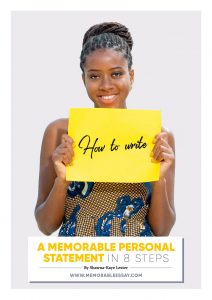Searching for and securing a job you are good at, enjoy doing and are well compensated for can take months. Hey, some people say it takes decades; others say your perfect job does not exist, and you must create it.
Still, let’s say some of these jobs exist and you need to find one as soon as possible. What do you do? To be honest, I strongly advise that instead of burrowing into a cover letter and resume writing cave, you start by speaking with your family and friends and asking that they connect you with their friends who are in the field in which you are looking for a job.
You tend to have the same network as your family and close friends, so when job hunting, include, but go beyond, your closest network.
Meanwhile, put together the most effective general cover letter and resume you can; these two documents will serve as templates from which you will work throughout your search. It is also convenient to have such a resume, so you can send it to someone in your field immediately. However, when you find a specific job that piques your interest, tailor your cover letter and resume to show that you have a genuine and well-thought-out conviction that you can add value to the post and vice versa.
How do you do this in the cover letter?
- Go through the main required qualifications in the job description. Determine the best examples of how you meet these qualifications, and focus on two or three of these examples in your cover letter.
- Identify one or two of the “preferred qualifications” that you meet, and acknowledge that you meet them in your letter.
- Ensure that your cover letter does not only speak to your previous accomplishments, but also to how those accomplishments have prepared you to excel in the role you are applying to.
-
Speak to why you admire and want to work with the organization. Be genuine.
- Include some piece of information that shows you have gone above and beyond to research the institution and the role they are trying to fill; this can be information from their website, annual report, or a conversation with a member of staff who does not mind being quoted or named in your letter.
To put together a tailored resume:
- Have a communication objective for your resume in mind, and ensure that each entry you include speaks to that objective. What message do you want the resume to convey? If you don’t know why you are composing the resume/the story you want it to tell, you will end up including irrelevant material. Including an Objective Statement or Summary can help keep you on track, and the message these should convey is that you are the ideal candidate for this post. The role the company is looking to fill is exactly the role you are looking to play.
-
Showcase the extent of your responsibilities and impact of your work, rather than the tasks you were assigned.
For example, “Facilitated 15-country commitment to five-year action plan to improve boys’ educational achievement” shows the impact of your work more than “Organized regional conference on boys’ educational achievement.”
- Prioritize experiences most relevant to the job over experiences that are prestigious but irrelevant.
- Avoid weak and boring verbs like “worked,” “helped” and “assisted.” Stronger options are “led,” “collaborated” and “liaised.”
- If you have completed college, only truly exceptional high school achievements— inventing a product in a class, interviewing the leader of your country or some global icon for the high school paper—should be considered for your resume. When in doubt, don’t include it. Similarly, if you are post-college or have completed graduate school, employers are not interested in your college GPA; they are interested in seeing why you are the person who can help them get their desired results in the months ahead. Show your future employer a track record of professional impact.
Do you have any more cover letter or resume tips you want to share here?



